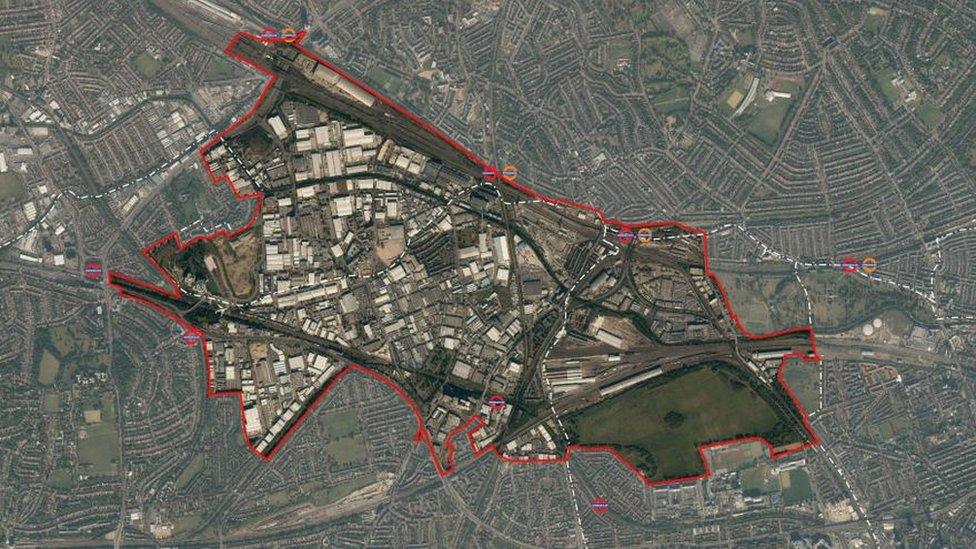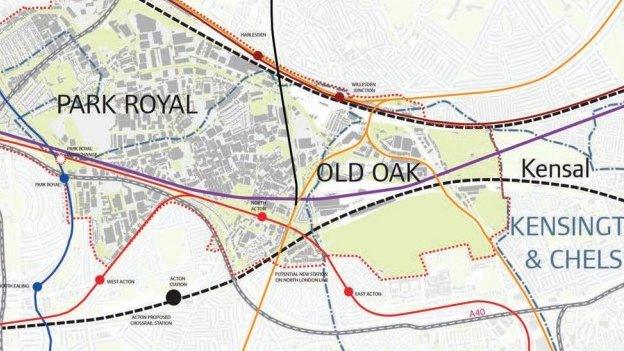Old Oak Common: Plan to buy Cargiant land for flats abandoned
- Published

Planned flats at Old Oak North are "no longer viable", the corporation said
One of London's largest regeneration schemes has lost £250m of government funding after abandoning plans to buy a plot of land.
Old Oak and Park Royal Development Corportaion (OPDC) had aimed to create up to 25,500 homes and 65,000 jobs in north-west London over 30 years.
Flats planned for Old Oak North are longer viable due to "rapid increases" in land prices, OPDC said.
The project could now produce fewer homes and jobs, the Conservatives said.
OPDC was launched in April 2015 by the then mayor of London, Boris Johnson, to create a new development, external at the site where HS2 meets Crossrail.
It is the UK's largest regeneration project since the London 2012 Olympic and Paralympic Games.
The original plans included building homes on a 54-acre site owned by the second-hand car company Cargiant.
The corporation applied to buy the the land, adjacent to the new HS2 Old Oak Common station, through a compulsory purchase order.

The Old Oak and Park Royal (OPCD) development in north-west London planned to create up to 25,500 homes and 65,000 jobs
But Cargiant disputed the sale of the land, which made up about 20% of the development's footprint.
In September the Planning Inspectorate supported Cargiant's opposition to the purchase.
Without the land OPDC will only be able to build 14,200 homes, the inspectorate said.
OPDC no longer intends to acquire that land and will be making amendments to its local plan draft, the office said.
The site will instead remain a business and employment location.

Old Oak North will remain a business and employment location
Susan Hall, a Conservative London Assembly member, said: "It's disappointing that the OPDC has had to go back to the drawing board after failing to reach an agreement with Cargiant.
"We warned the mayor that this project was in troubled waters and asked him to step in to help the OPDC reach an agreement with Cargiant, but sadly Sadiq Khan failed to act."
OPDC will switch its focus to large public-sector land holdings near the existing Willesden Junction station.
The corporation also said it would not be "taking forward" the provisional award of £250m of funding from the government's Housing Infrastructure Fund.
David Lunts, OPDC's interim chief executive, said the new approach "makes good sense given the dramatic changes in market conditions over the last year or so".
"But this in no way undermines our ambition for thousands of new homes and jobs as these can be achieved on many nearby public-sector sites where we are already working closely with our colleagues at Network Rail and HS2," he added.
- Published28 January 2015
